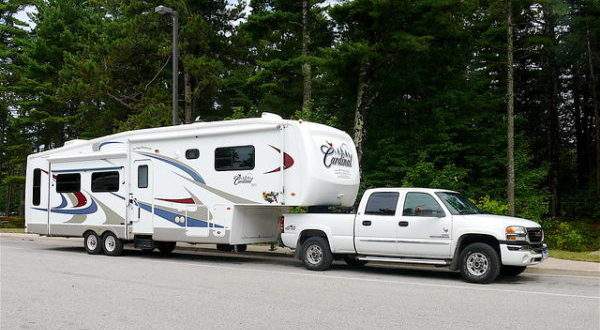The Blessing of Travel on Demand: 5 Things to Keep in Mind Before Buying a Fifth Wheel

Camping season is upon us. In fact, for some people, it’s a year-round event. In the eyes of those who hold fast to the camping lifestyle, barbecues, bonfires and taking off on a whim to the next intriguing destination isn’t bound by weather or specific dates on the calendar.
While there are numerous ways to enjoy the great outdoors and bond with nature, RVs are rapidly becoming the favored alternative for avid campers. Of course, plenty of options are available in this category as well. If you’re among the thousands of people perusing fifth wheels for sale, consider a few key points before making a purchase.
Taking a Closer Look at Fifth-Wheel Travel Trailers
Many who’ve tried their hands at a variety of campers swear by fifth wheels. They offer a great deal more stability and maneuverability than standard pull-behind travel trailers. They’re also known for having spacious floor plans and making efficient use of all available square footage. Still, certain other details should be taken into account before deciding this is the best choice for your future camping trips.
1) Bigger Isn’t Always Better
Fifth wheels come in several sizes. Longer models tend to have more features than shorter ones, such as separate master bedrooms, more spacious bathrooms, and even laundry facilities. That being said, adding length detracts from maneuverability when it comes to matters like navigating tight spaces; traveling narrow, curvy mountain roads; and working your way into smaller campsites.
Also, keep in mind some campgrounds have RV length restrictions in place. If you’re all geared up for an extended outdoor excursion, being turned away at the gate because of the size of your RV can really put a damper on things. This is especially true if the deposit for the campsite is nonrefundable.
If you’re an old pro at pulling various types of trailers, extra length and reduced flexibility may not be an issue. Otherwise, it may be best to sacrifice a couple of luxuries and go with a shorter model.
2) Trucks Have Limits
Being equipped with a fifth-wheel hitch doesn’t necessarily mean a truck can handle every travel trailer on the market. Fifth wheels generally have stickers on them showing the weight of the trailer as well as a long list of other numbers. Your truck most likely has a sticker on the drivers-side door jamb noting its maximum towing capacity.
Towing capacities are generally conservative estimates determined by vehicle manufacturers, so the truck may be able to handle a little more than its tow rating suggests. Even so, this doesn’t mean pushing the limits is advisable. If you need help doing the math, a downloadable tow check app will eliminate a great deal of guesswork.
3) It’s Not Just the Trailer
Making sure your truck can safely manage the weight of the fifth wheel is important, but it’s only part of the bigger picture. Everything you pack into the trailer, from food to clothing and other essentials, adds extra weight. If you choose a toy hauler, the weight of the toys to be hauled should also be factored into the equation.
Keep the holding tanks in mind as well. One gallon of water weighs about 8.35 pounds. This means a single 30-gallon holding tank filled to the max will add more than 250 pounds to your overall tow weight.
4) Speaking of Holding Tanks
Travel trailers are typically equipped with three separate holding tanks for fresh, gray and black water. In some models, the gray and black water tank is a single, combined unit. Different tank sizes and types are available.
Tank capacity determines how frequently you’ll need to empty out the black and gray water as well as how much fresh water can be stored. If you plan to camp in areas without water and sewer hookups, consider purchasing a travel trailer with larger tanks.
5) Coverage Is Crucial
When parked safely on your property, an RV is most likely covered by your homeowner’s insurance. On the road, it may be partially covered by your automobile insurance. Unfortunately, not all instances fall under these general umbrellas. Additional RV coverage is required by law, and several policies are available to protect you in a wide range of circumstances.
In a Nutshell
Fifth-wheel travel trailers offer a number of benefits, and models are available to suit virtually any family’s needs. Before making one a permanent addition to your camping repertoire, though, consider these factors.
Be sure you and your truck are up for the challenge and don’t overlook all the extra weight you might be adding to the mix. Find a model with large enough holding tanks to handle the amount of water your family will use. Regardless of the model you choose, take care to find the right insurance coverage to protect against all the possibilities.





